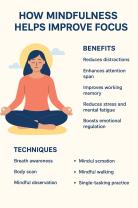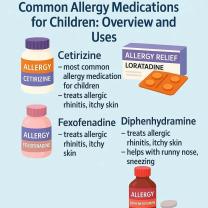How long can you live with dilated cardiomyopathy?
The life expectancy of an individual with dilated cardiomyopathy (DCM) can vary widely depending on several factors, including the severity of the condition, the underlying causes, and the effectiveness of treatment. DCM is a condition in which the heart's ability to pump blood is reduced because the heart's main pumping chamber (the left ventricle) becomes enlarged and weakened. Here are some key points to consider:
Severity of DCM: The degree of heart enlargement and dysfunction can vary from person to person. Some individuals may have mild DCM, while others have more severe cases. The severity of DCM often correlates with prognosis.
Underlying Causes: DCM can have various underlying causes, including genetics, viral infections, alcohol abuse, and certain medications. Identifying and addressing the cause can influence the course of the disease.
Medical Management: Advances in medical treatments and therapies have improved the outlook for people with DCM. Medications, lifestyle changes, and interventions like implantable devices (such as pacemakers or implantable cardioverter-defibrillators) can help manage symptoms and extend life expectancy.
Heart Transplant: In severe cases of DCM where medical treatments are not effective, a heart transplant may be considered as a potential life-extending option.
Early Diagnosis and Treatment: Early diagnosis and prompt medical intervention can significantly improve the prognosis. Regular follow-up with a cardiologist is essential to monitor the condition and adjust treatment as needed.
Lifestyle Factors: Lifestyle changes, such as reducing salt intake, quitting smoking, and managing other chronic health conditions (e.g., high blood pressure or diabetes), can also play a crucial role in improving outcomes.
Individual Variation: It's important to recognize that each person's experience with DCM is unique. Some individuals may live relatively normal lives with DCM, while others may have a more challenging course.
Prognosis: Generally, with appropriate treatment and management, many people with DCM can have a relatively normal life expectancy. Some may experience a significant improvement in heart function, while others may have a more stable condition that requires ongoing monitoring and care. In severe cases, however, the prognosis can be less optimistic.
It's crucial for individuals with DCM to work closely with their healthcare team to develop a personalized treatment plan and receive regular check-ups. The outlook for someone with DCM can vary greatly, so it's challenging to provide a specific life expectancy without considering the individual's unique circumstances. Early diagnosis, adherence to treatment, and a healthy lifestyle can all contribute to better outcomes for individuals with DCM.
1. Life Expectancy with Dilated Cardiomyopathy: Factors and Insights
Dilated cardiomyopathy (DCM) is a condition in which the heart's main pumping chamber, the left ventricle, becomes enlarged and weakened. It is the most common type of cardiomyopathy, and it can affect people of all ages and genders.
The life expectancy of people with DCM varies depending on a number of factors, including:
- Age at diagnosis: Younger people with DCM tend to have a better prognosis than older people.
- Severity of symptoms: People with more severe symptoms at diagnosis tend to have a shorter life expectancy.
- Underlying cause of DCM: DCM can be caused by a variety of factors, including genetic mutations, coronary artery disease, and viral infections. People with DCM caused by certain factors, such as genetic mutations, may have a shorter life expectancy.
- Response to treatment: People who respond well to treatment tend to have a better prognosis than those who do not.
Despite these factors, there have been significant advances in the treatment of DCM in recent years. As a result, the life expectancy of people with DCM has improved.
2. Living with Dilated Cardiomyopathy: Understanding Long-Term Prognosis
Living with DCM can be challenging, but it is possible to live a long and fulfilling life with the condition. There are a number of things that people with DCM can do to improve their long-term prognosis, including:
- Taking medications as prescribed: Medications can help to control symptoms, improve heart function, and reduce the risk of complications.
- Following a healthy lifestyle: Eating a healthy diet, exercising regularly, and maintaining a healthy weight can all help to improve heart health and reduce the risk of complications.
- Getting regular checkups: It is important to see a doctor regularly to monitor heart function and adjust medications as needed.
3. Dilated Cardiomyopathy Survival: Navigating the Journey Ahead
If you have been diagnosed with DCM, it is important to know that you are not alone. There are many people who live long and full lives with the condition.
Here are some tips for navigating the journey ahead:
- Educate yourself about DCM. The more you know about your condition, the better equipped you will be to manage it. Talk to your doctor, read books and articles, and join support groups for people with DCM.
- Find a team of healthcare providers that you trust. You will need to work closely with your doctor, cardiologist, and other healthcare providers to manage your condition. Make sure to find a team that you feel comfortable with and that you can rely on for support.
- Be patient and persistent. Managing DCM takes time and effort. Don't get discouraged if you don't see results immediately. Just keep working with your healthcare team and following their recommendations.
Remember, you are not alone in this journey. There are many people who are here to support you and help you live a long and fulfilling life with DCM.













